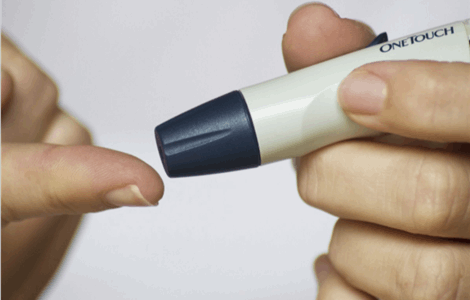
Diabetes management requires awareness. Within this article you will learn what makes your blood sugar level rise and fall, how to monitor these day-to-day variables, and when to call our home GP service for diabetes in Sotogrande.
How to keep your sugar levels within the range recommended
There are many factors responsible for the changes and fluctuations on your sugar levels in your blood. Sometimes these changes happen unexpectedly, that is why it can be a real challenge to balance your blood sugar levels within the spectrum recommended. The following list gives you information about what aspects can affect your blood sugar levels. Make sure you read this carefully before calling our home GP service for diabetes in Sotogrande.
Food
A pillar of healthy living, with or without diabetes, is healthy eating. But it is even more important to know how your eating habits affect your blood sugar levels if you have diabetes. It's not only the type of food you consume, but also the amount and food combinations you eat that influences the concentration of sugar in your blood.
Exercise
Being physically active is another important aspect to control your diabetes. While exercising, your muscles convert sugar, also known as glucose, into energy. Also, if done regularly your body will be able to use insulin more effectively. Working together, both of these factors decrease your blood sugar levels. Therefore you should know that the effect lasts longer the more strenuous your exercise is. But even moderate day-to-day tasks, like gardening or housework, can help manage your blood sugar levels.
Medication
When a nutritious diet and regular activity alone aren't enough to regulate diabetes, insulin and other diabetes medications will be part of your diabetes management plan to reduce blood sugar levels. The efficiency of these drugs, however, depends on the timing and dose size when taken. Your blood sugar levels can also be influenced by medicines you take for diseases other than diabetes. If you have problems with your medication contact our home GP service for diabetes in Sotogrande.
Illness
While you are sick, your body releases stress-related hormones to fight the illness. However, these hormones can also increase your blood sugar levels. Some other factors that possibly complicate your diabetes management can be changes in your eating habits and everyday exercises.
Alcohol
Within the normal body functions, your liver counters a decrease in blood sugar levels by releasing some of its stored sugar. But while your liver is metabolizing alcohol this system doesn't work and your blood sugar levels can't be balanced. The result of low blood sugar caused by alcohol occurs shortly after drinking and can last for 24 hours.
Menstruation and menopause
Significant fluctuations in blood sugar levels can result from changes in hormone levels during menopause as well as the week before and during menstruation.
Stress
As already mentioned the hormones your body produces while you are stressed can lead to higher blood sugar levels. Besides this, if you are under a lot of additional pressure, it might be difficult to observe the normal diabetes management routine closely.
When to reach out to our home GP service for diabetes in Sotogrande
The more information you have about the aspects that can affect the concentration of sugar in your blood, the easier it is to predict fluctuations and adjust your diabetes management plan accordingly. However, if you are having trouble keeping your blood sugar level within your desired range, call our home GP service for diabetes in Sotogrande for assistance.